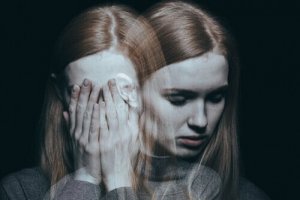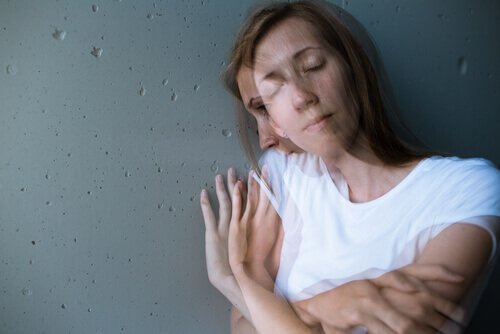Delusional Disorder: Symptoms and Treatment

Delusional disorder is mainly characterized by at least one month of delusions. In the 17th century, the concept of insanity mostly referred to delusions. Consequently, being “insane” was the same as having delusions and vice-versa. But what exactly is a delusion?
The most well-known and most frequently cited definition can be found in Karl Jaspers’ General Psychopathology (1975). He described delusions as false and impossible beliefs that are held with an unshakable conviction that can’t be influenced by experience or evidence.
To identify a delusion, you have to consider the degree to which the experience meets the following criteria:
- The individual holds to their beliefs with absolute conviction.
- They believe the truth is totally obvious to everyone.
- Neither reason nor experience modify their beliefs.
- The belief is often bizarre or at least highly improbable.
- The other members of the social or cultural group don’t share the belief.
- The individual is concerned about their belief and it’s difficult for them to think or talk about it.
- Their belief is a source of subjective distress and it interferes with their social and personal life.
As you can see, delusions are conceptually complex. As a result, it’s difficult to make them fit into a single definition. Today, if you ask a random person on the street to describe an “insane” person, they’ll probably describe someone who believes they’re Napoleon or that aliens are out to get them.

What is delusional disorder?
When people think of delusions, they often think of schizophrenia. However, they’re two separate disorders.
A psychologist won’t diagnose a patient with delusional disorder if said individual has ever met the DSM-5 diagnostic criteria for schizophrenia. Aside from the direct impact of having delusions, the deterioration of psycho-social function might be more limited than in other psychotic disorders.
Someone with delusional disorder doesn’t behave in a strange or extravagant way. The DSM-5 also clarifies that the patients’ delusions can’t be attributed to side-effects of drug abuse (i.e. cocaine) or other medical conditions (for example, Alzheimer’s disease). Medical professionals also have to rule out other mental disorders that would better explain the symptoms (like body dysmorphic disorder or obsessive-compulsive disorder).
DSM-5 delusional disorder diagnostic criteria
The Diagnostic and Statistical Manual of Mental Disorders (DSM-5) lays out the following diagnostic criteria for delusional disorder:
A. Presence of one or more delusions with a duration of one month or longer.
B. The diagnostic criteria for schizophrenia have never been met. Note: Hallucinations, if present, are not prominent and are clearly thematically related to the delusional theme (e.g., the sensation of being infected with insects is associated with the delusions of infestation).
C. Apart from the impact of the delusion(s) or its ramifications, patient functioning is not markedly impaired, and behavior is not obviously bizarre or odd.
D. If manic or major depressive episodes have occurred, these have been brief relative to the duration of the delusional symptoms.
E. The disturbance is not better explained by another mental disorder such as obsessive-compulsive disorder, and is not attributable to the physiological effects of a substance or medication or another systemic medical condition.

What kinds of delusions exist?
The DSM-5 also defines the types of existing delusions:
- Erotomanic. People with this delusion believe that someone is in love with them.
- Grandiose. Someone with this type of delusion believes that they have a special and unrecognized talent or knowledge or that they have made an important discovery.
- Jealous. This sub-type describes people whose delusions revolve around their partner or lover’s infidelity.
- Persecutory. People with this kind of delusion believe that others are conspiring against, deceiving, spying, following, poisoning, drugging, defaming, harassing them, or keeping them from fulfilling their long-term goals in some way.
- Somatic. Delusions are somatic when they have to do with bodily functions or sensations.
- Mixed. When people have two or more of the delusions listed above.
Delusional disorder treatment
Delusional disorder is difficult to treat. Health professionals frequently prescribe anti-psychotic medication, anti-depressives, and mood-stabilizing drugs for psychotic disorders. Likewise, many professionals use psychological therapy to treat it. However, there’s still a lot of room for improvement.

As of yet, there isn’t a particular treatment for delusional disorder that yields significantly better results than others. Until psychologists find a specific intervention that yields better results, treatment for delusional disorders will probably be based on those considered effective for other psychotic disorders and mental health conditions.
Delusional disorder is mainly characterized by at least one month of delusions. In the 17th century, the concept of insanity mostly referred to delusions. Consequently, being “insane” was the same as having delusions and vice-versa. But what exactly is a delusion?
The most well-known and most frequently cited definition can be found in Karl Jaspers’ General Psychopathology (1975). He described delusions as false and impossible beliefs that are held with an unshakable conviction that can’t be influenced by experience or evidence.
To identify a delusion, you have to consider the degree to which the experience meets the following criteria:
- The individual holds to their beliefs with absolute conviction.
- They believe the truth is totally obvious to everyone.
- Neither reason nor experience modify their beliefs.
- The belief is often bizarre or at least highly improbable.
- The other members of the social or cultural group don’t share the belief.
- The individual is concerned about their belief and it’s difficult for them to think or talk about it.
- Their belief is a source of subjective distress and it interferes with their social and personal life.
As you can see, delusions are conceptually complex. As a result, it’s difficult to make them fit into a single definition. Today, if you ask a random person on the street to describe an “insane” person, they’ll probably describe someone who believes they’re Napoleon or that aliens are out to get them.

What is delusional disorder?
When people think of delusions, they often think of schizophrenia. However, they’re two separate disorders.
A psychologist won’t diagnose a patient with delusional disorder if said individual has ever met the DSM-5 diagnostic criteria for schizophrenia. Aside from the direct impact of having delusions, the deterioration of psycho-social function might be more limited than in other psychotic disorders.
Someone with delusional disorder doesn’t behave in a strange or extravagant way. The DSM-5 also clarifies that the patients’ delusions can’t be attributed to side-effects of drug abuse (i.e. cocaine) or other medical conditions (for example, Alzheimer’s disease). Medical professionals also have to rule out other mental disorders that would better explain the symptoms (like body dysmorphic disorder or obsessive-compulsive disorder).
DSM-5 delusional disorder diagnostic criteria
The Diagnostic and Statistical Manual of Mental Disorders (DSM-5) lays out the following diagnostic criteria for delusional disorder:
A. Presence of one or more delusions with a duration of one month or longer.
B. The diagnostic criteria for schizophrenia have never been met. Note: Hallucinations, if present, are not prominent and are clearly thematically related to the delusional theme (e.g., the sensation of being infected with insects is associated with the delusions of infestation).
C. Apart from the impact of the delusion(s) or its ramifications, patient functioning is not markedly impaired, and behavior is not obviously bizarre or odd.
D. If manic or major depressive episodes have occurred, these have been brief relative to the duration of the delusional symptoms.
E. The disturbance is not better explained by another mental disorder such as obsessive-compulsive disorder, and is not attributable to the physiological effects of a substance or medication or another systemic medical condition.

What kinds of delusions exist?
The DSM-5 also defines the types of existing delusions:
- Erotomanic. People with this delusion believe that someone is in love with them.
- Grandiose. Someone with this type of delusion believes that they have a special and unrecognized talent or knowledge or that they have made an important discovery.
- Jealous. This sub-type describes people whose delusions revolve around their partner or lover’s infidelity.
- Persecutory. People with this kind of delusion believe that others are conspiring against, deceiving, spying, following, poisoning, drugging, defaming, harassing them, or keeping them from fulfilling their long-term goals in some way.
- Somatic. Delusions are somatic when they have to do with bodily functions or sensations.
- Mixed. When people have two or more of the delusions listed above.
Delusional disorder treatment
Delusional disorder is difficult to treat. Health professionals frequently prescribe anti-psychotic medication, anti-depressives, and mood-stabilizing drugs for psychotic disorders. Likewise, many professionals use psychological therapy to treat it. However, there’s still a lot of room for improvement.

As of yet, there isn’t a particular treatment for delusional disorder that yields significantly better results than others. Until psychologists find a specific intervention that yields better results, treatment for delusional disorders will probably be based on those considered effective for other psychotic disorders and mental health conditions.
This text is provided for informational purposes only and does not replace consultation with a professional. If in doubt, consult your specialist.







